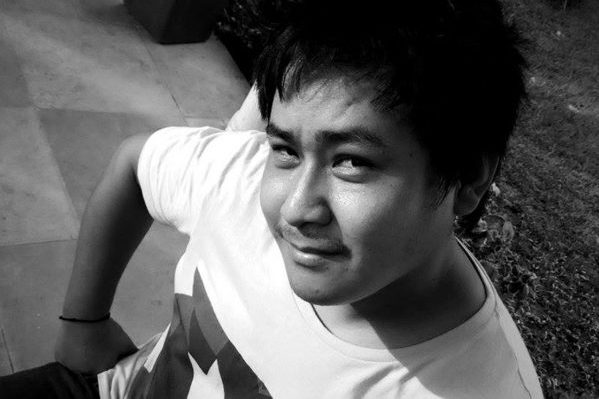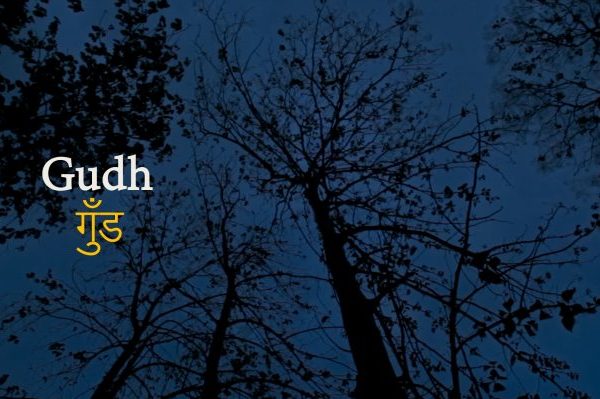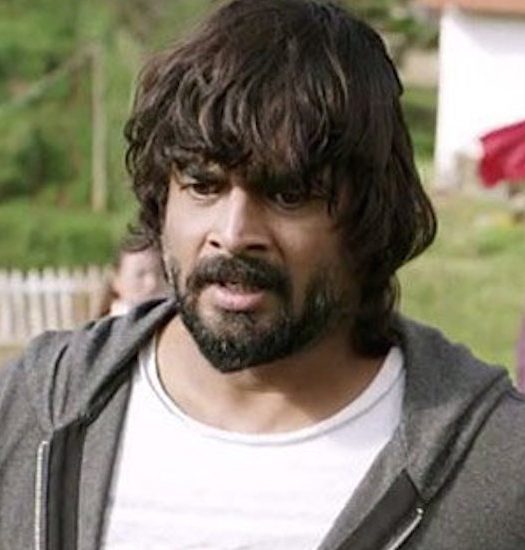The stream of art allows me to express myself – Saurav Rai
The 69th Cannes Film Festival opens on May 11 and features the film Gudh, the only Indian entry to be showcased at the festival this year. The autobiographical account of writer – director Saurav Rai, the film talks about his memories growing up and the distance he felt from his mother. Here’s what the young filmmaker has to say about his journey and memories that have culminated into this beautiful story.

Saurav Rai
Tell us about the premise of your film Gudh.
I was supposed to make a 30-minute short film for my diploma in film school. I am an introspective person and I wanted to write a story that will force me to make a film. I don’t like stories that are inspired from other stories. So in the process, I wrote about a childhood memory that I had about spending time with my mother during my winter vacations. The moment when I moved back in with parents is unclear to me. As I tried to identify the time and moment, I started writing all of those memories down and then juxtaposed them. The political cause was just a backdrop to the personal problems it created because of which I was brought up by my grandparents and because of which I didn’t have and still don’t have a close relationship with my parents. It was more about coming to terms with this distance and looking back at life to understand where I went wrong and why do I have a void in me.
READ: THE SHORT FILMS SELECTIONS AT THE 69TH FESTIVAL DE CANNES
What does the title ‘Gudh’ signify?
‘Gudh’ in Nepali means ‘Nest’. The village where I spent my winter vacation with my parents was like a nest for me. The rest of the time I was in the city with my grandparents. Nest symbolizes so many things, the warmth of a mother, the mother’s womb and so on.
The film is said to be autobiographical, drawing references from your childhood. Where there any specific memories that encouraged you to make them into a film?
The most prominent memory that prompted me to make this film was when I was a 2-3 year old toddler; I had a memory of experiencing an earthquake with my mother. But last year when I asked my mother about this she said that we never experienced it. I was quite taken aback, and was really sad as I realized that a lot of aspects of my film were made of corridor scenes. A corridor scene is a metaphysical or surreal element of my film. So when I was a kid, my mother and I used to play around the corridor and she must have just teasingly screamed that there is an earthquake and as a toddler I was rolling around and that got built up in my head to believing that I did experience an earthquake.
The film is set against the backdrop of the Gurkhaland movement. To what extent did it affect your growing up years?
Very discretely. I am not a political person and so didn’t want to talk about the movement. It is a very small part of the film and is very subtly portrayed. The film by itself is not a narrative, if you take out any scenes or shift the scenes around it would still make sense. That was the magic that drew me towards this film.
While making a film that is so close to the heart, what are the kind of hurdles that one faces?
When you are making such a film, you can trust no one around, because no one from your team can really understand your vision. I get very angry when I make personal films. In my previous film, Memories, which was about my fear of losing my best friend – my grandfather, the whole crew had given up on me as they couldn’t understand my vision. But when the film finally came out they all loved it and wanted to put it on their resumes. I was very upset as you can’t summarize things in terms of achievement and work, for someone like me the stream of art allows me to express myself.
READ: WAITING IS BASED ON A PERSONAL EXPERIENCE – ANU MENON

Gudh
How has your hometown influenced your journey as a filmmaker?
A part of my life was spent in Kathmandu with my grandparents and then post sixth grade I was in Kalimpong. I then went back to my village and studied in my village school where I had to overcome certain challenges, like walking to school for 2-3 hours. I used to walk through silence, dirty roads and forests, with no electricity and no entertainment. When we started getting electricity, I would save pocket money so that I could watch films. I started spending time with myself and started enjoying those long walks to the school. I kept thinking that I have to move out of the village but I never knew that this same village experience would be my bread and butter.
How does being the only Indian film at Cannes give an impetus to the film as a whole?
It puts me under a lot of pressure. The whole media is talking about it being the only Indian film (at the festival). There are bigger names in India and I am a huge fan of so many filmmakers and I am irritated that the other films didn’t get selected. I am a very shy person and this is bringing me to the forefront. I wish there were other films as well so that I could take a back seat (smiles). I wanted to make a splash in a bigger way, probably for my first feature film, but surprisingly this short film has done pretty well and is going places. It is bringing attention before I wanted.
READ: DIRECTORS’ FORTNIGHT UNVEILS 2016 LINEUP
How did you go about getting funding for Gudh?
Funding is quite simple because when you are studying in a national film school, the Ministry of Broadcasting covers the cost as a part of the scholarship program. I am so grateful to the school and the government because they have given us all the facilities for production, and that has given us great exposure. Any able filmmaker who is good enough to get admission here will realize how good the place is and it can compete with any film school in the world.
What is studying at SRFTI (Satyajit Ray Film and Television Institute) like and how has it molded you as a filmmaker?
Before coming to SRFTI, I was a very difficult child. I have not had a normal upbringing and was not a normal kid. After graduation, I was roaming around the country, getting jobs and quitting them; I was trouble. Filmmaking was at the back of my mind, and I would write stories and would work on how to execute them. SRFTI just happened, after which my whole life was transformed. These four years turned out to be an introspective time for me, for me to ponder over whom I am, how my life was, and to think, more than anything else.
Could you tell us a little about your past work?
I started making short films ever since I was in college, studying mass communication in journalism. In SRFTI I made a few films, some of which were quite successful, my film Monsoon Rain did quite well in the festival circuit. This was the first short film that gave me the confidence to make films. Then I went on to make quite a few documentaries including one that was on old age in China. So if someone were to analyze my films, they would see that I keep going back to the same theme – ‘old age’, ‘mother’, ‘father’. Thematically I have never moved away.
READ: FESTIVALS HAVE BECOME A PARALLEL MARKET FOR FILMS
But are there any other genres that you would like to explore?
There are so many genres that I want to, it only depends on how strong an urge I have to make that film. As a filmmaker I am equipped to make so many films but if my heart is not there, I may not be able to. But I am giving myself time and getting to know myself better.
Going forward, what are your plans for Gudh?
The film is currently circulating in various festivals; I think I should done in 15 months. I would like people to watch and enjoy it but I want it to get over so that I can move on to my next project.



